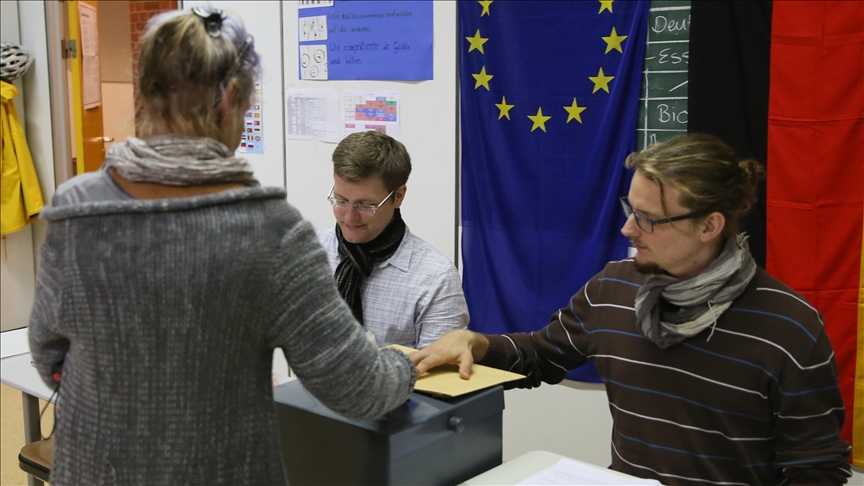German intelligence agency warns of 'foreign interference' in upcoming elections
Special task force established to counter disinformation and cyber threats ahead of February 2025 parliamentary vote
 German voters in Berlin, Germany ( Cüneyt Karadağ - Anadolu Agency )
German voters in Berlin, Germany ( Cüneyt Karadağ - Anadolu Agency )
BERLIN
Germany's domestic intelligence agency issued a stark warning on Friday about potential “foreign interference” in the country's upcoming parliamentary elections.
The Federal Office for the Protection of the Constitution (BfV) announced that it has formed a special task force to combat possible disinformation campaigns and cyberattacks ahead of the February 2025 vote.
“Such key political events can always become the target of undue influence by foreign powers seeking to pursue their strategic goals,” the agency stated in its threat analysis published on its website.
It warned about a range of potential threats, including disinformation and discreditation campaigns, cyberattacks, as well as espionage and sabotage operations.
According to the BfV, Russia “probably has the greatest and most obvious interest in influencing the election in its own interests,” particularly against the backdrop of its ongoing war in Ukraine.
The agency noted that Moscow is waging an “information war” with the West, aggressively expanding pro-Russian and anti-Western rhetoric.
“The aim is to create or deepen insecurities and dividing lines in German society, to reduce the willingness to support Ukraine and, in this sense, to influence political decisions,” the agency explained.
The BfV highlighted artificial intelligence as an emerging threat, warning that sophisticated "deep fake videos” and fake audio recordings could be used to mislead voters.
Previous cyberattacks on German politicians and political parties have been attributed to Russian hacker groups, including APT 28 and Ghostwriter. They were accused of “hack and leak” and “hack and publish” operations.
The agency also highlighted increased risks of sabotage attacks targeting critical infrastructure.
“Since a federal election is particularly in the public eye, a foreign actor could therefore also consider sabotage activities. Such activities not only cause damage; they also have a propaganda dimension,” the BfV said.
Germany will hold snap parliamentary elections on Feb. 23, 2025, following the unexpected collapse of Chancellor Olaf Scholz's three-party coalition government.
The early vote was triggered after internal disputes over government spending and policy priorities led to the dissolution of the ruling alliance.
Voters will elect a new parliament at a crucial moment as Europe's largest economy faces mounting economic problems, energy security concerns, and foreign policy challenges.
Anadolu Agency website contains only a portion of the news stories offered to subscribers in the AA News Broadcasting System (HAS), and in summarized form. Please contact us for subscription options.







